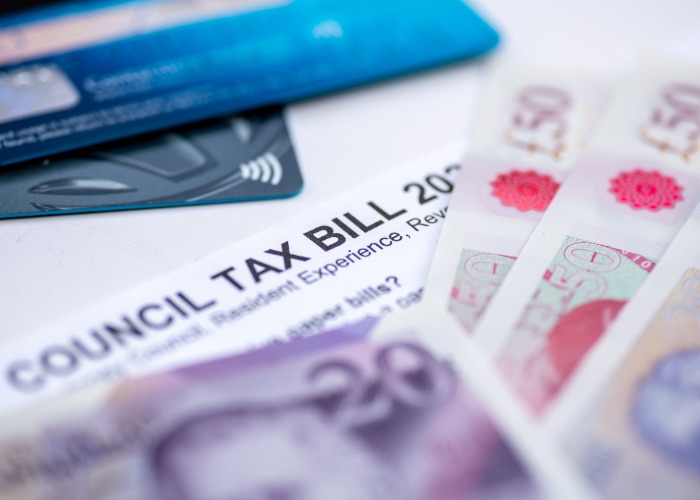Blow for struggling households as Council Tax to rise at fastest rate for 20 years

The typical Band D bill could soar almost £360 by 2028, plunging many more households into Council Tax debt.
The Government has given the green light for yet more damaging Council Tax hikes.
Bills are likely to rise by 4.99% a year for the next three years, in a move that could see the typical Band D Council Tax bill rocket from the current £2,280 to £2,639 in 2028.
That’s an increase of almost £360, with those living in Band G and H potentially facing hikes up to 50% higher.
Tax hikes to help fund increased spending
These Council Tax increases have been earmarked for additional funding for the police.
During her Spending Review speech on Wednesday, Chancellor Rachel Reeves announced hundreds of billions in extra spending.
But one Government department left off the list was the Home Office.
Rather than choosing to announce extra funding upfront, the Government has instead chosen to raise funding by ramping up Council Tax increases for a few years.
Treasury documents released after the Spending Review revealed the increase would come from "additional income, including estimated funding from the police Council Tax precept".
This effectively gives local authorities the green light to hike the portion of Council Tax that’s allocated to police funding.
Council Tax is on an unsustainable trajectory
This means the vast majority of households will likely be hit with a bill hike of 4.99% each year – anything above this level would require councils to hold an unpopular local referendum.
It’s worth noting that a significant number of councils have already rolled out hikes at this level in recent years.
But, with this new pressure to increase the policing precept of Council Tax, the number of councils doing so seems set to become commonplace.
A 4.99% overall hike would represent the biggest increase since 2004/2005, and we now appear to be on track for three consecutive years of hikes at this level.
We regularly warn that the Government is setting Council Tax rises at an unsustainable level long term, but it’s worth looking at some of the numbers to hammer home the point.
Back in the year 2000, a typical Band D Council Tax bill made up 4.5% of the average UK worker’s salary.
By 2010, this had increased to 5.5%, and this year it stands at 6.1% of the average income.
With hikes for the next three years likely to exceed anything seen in the last 20 years, we can expect this figure to rise further still by 2028.
And this at a time when the cost of living crisis is squeezing household finances from multiple angles.
|
Year |
Band D bill |
Average salary |
% of income |
|
2000 |
£847 |
£18,848 |
4.5% |
|
2010 |
£1,439 |
£25,882 |
5.5% |
|
2025 |
£2,280 |
£37,430 |
6.1% |
Households simply can’t keep up
Soaring Council Tax bills are becoming a massive drain on our finances, with more and more households struggling to keep up with the bigger sums being demanded each year
Staggering research from the charity Debt Justice released last month found that 4.4 million people have fallen behind on their Council Tax, an increase of 1.2 million in the last year alone.
And it’s worth repeating that Council Tax hikes are likely to be bigger than we’ve seen for a generation over the next three years.
With Council Tax considered a priority debt, the impact of falling behind can be devastating for households, and the sector has long been blighted by aggressive debt collection practices.
What to do if you’re in Council Tax arrears
If you are struggling to keep up with your bills, we have a guide that explains how some people can reduce their Council Tax.
You should also contact your local Citizens Advice Bureau to see what help you can get with your bills.
Additionally, visit the debt charity StephChange site for more guidance on Council Tax debt.
Comments
Be the first to comment
Do you want to comment on this article? You need to be signed in for this feature